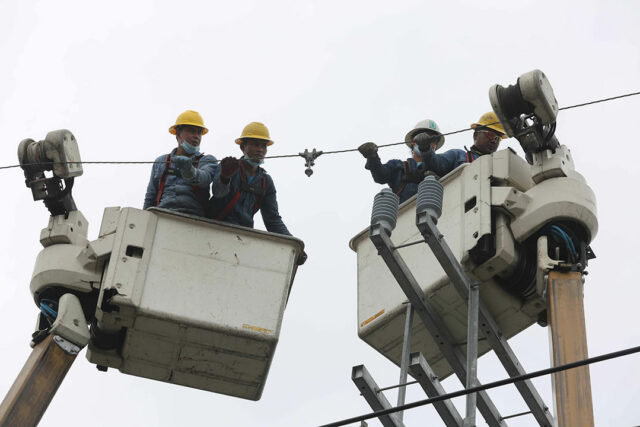New highs for Nikkei, nervous new year break for China
SINGAPORE — Japanese shares hit 34-year highs on Friday as world stocks eyed a third week of gains, while adjustments to interest rate expectations sent the yen to a two-month low and the Australian and New Zealand dollars in opposite directions.
In China, mainland markets were closed and Hong Kong traded thinly and shut early, with the Hang Seng down 0.8% amid nerves authorities may not deliver on promises for support.
The index lost 29% in the zodiac year of the rabbit and the dragon year begins with China sentiment in the dumps and expectations of some sort of support announcement in Lunar New Year holiday.
“I am betting that (decisive action) is happening,” said Chi Lo senior markets strategist for Asia Pacific at BNP Paribas Asset Management.
“But it is a leap of faith so to speak. Because the Chinese government has made too many promises and the market and investors have been frustrated by the lack of follow up … so we do need to see Beijing come up with concrete measures.”
MSCI’s broadest index of Asia-Pacific shares outside Japan fell 0.3% though still eked a weekly rise.
Japan’s Nikkei, which has been receiving a gush of foreign inflows as investors flee China, rose 0.3%, aided by a retreating yen that traded at its weakest in more than two months at 149.49 per dollar.
SoftBank led gains in Tokyo with a 10% rise as it swung to profit and shares in its Arm chip design unit leapt almost 50% after an upbeat revenue forecast.
Nissan shares collapsed almost 12% for their largest fall in decades after the automaker cut its outlook on slumping China sales.
Margin improvement drove shares in building-materials maker Boral up more than 8% to a record high in Australia.
In commodities, Brent crude futures were at $81.46 a barrel and on course for a weekly gain of more than 5% following Israel’s rejection of a ceasefire offer from Hamas and a US strike on an Iran-backed militia commander in Iraq.
REVISION
This week bond markets have been on the back foot in the wake of a strong jobs report and a chorus of central bank comments labouring on reticence on rate cuts.
Australia’s top central banker warned on Friday there was still some way to go to meet the midpoint of its 2-3% inflation target, and markets pushed out rate cut pricing and had the Aussie dollar heading for a sixth weekly loss in a row.
Across the Tasman Sea, the odds of a further hike from the Reserve Bank of New Zealand are narrowing after ANZ called for two more rate rises in both February and April.
The next policy meeting is on Feb. 28 and markets have shifted to imply around a 38% chance of a hike, compared with almost no chance a week ago.
The New Zealand dollar rose 0.5% to $0.6129 and headed for a 1% weekly gain. The euro was steady at $1.0771. The yen has been weighed by Bank of Japan (BOJ) Deputy Governor Shinichi Uchida saying rapid hikes were unlikely.
Two-year US Treasury yields are up about eight basis points (bps) this week to 4.45%.
Ten-year yields seem to have settled above 4% and were steady at 4.15% on Friday, up 12 bps this week. Bitcoin is up 8.6% on the week to $46,254.
Later on Friday, US inflation revisions will be closely watched for any sign that market assumptions that inflation is in retreat need re-calibration.
“It sounds like something only economics boffins are interested in but last year the revisions were big enough to make the US’s inflation momentum stronger than first thought,” said Corpay currency strategist Peter Dragicevich in Sydney.
“There is a risk this occurs again.” — Reuters













